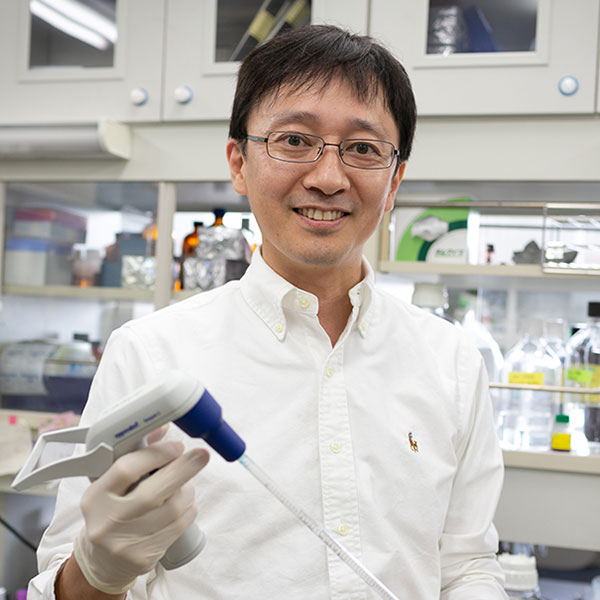- 12:40 ―
- Gate Opening
- 13:20 ―
- Opening Talk
- 13:25 ― 13:40
-

Asuka TakeishiNeural circuit of multisensory integration
Talk 1
Unraveling the brain’s mechanism of information integration using tiny wormsWe are naturally drawn to things we like and try to avoid things we dislike. However, we may or may not get that "Oh, that's nice" feeling about the same thing depending on our current state and the surrounding environment. In fact, even a tiny roundworm with only 302 nerve cells, called C. elegans, processes multiple pieces of information just like us, adjusting its judgments, such as whether to approach the scent of its favorite food, based on the situation. In my talk, I will share what has been discovered about how the brain consolidates various information to determine appropriate actions, drawing insights from the study of these small worms.
- 13:45 ― 14:00
-

Joshua JohansenNeural Circuitry of Learning and Memory
Talk 2
Constructing emotion in neural circuitsYou may think that feelings or emotions are simple reflexes that our brains instantly produce in response to external stimuli. However, the truth is far more complex. While neuroscientists have identified how the brain senses and reacts to the world, the mechanisms of how emotions emerge in the brain are not yet well understood. In this talk, I will discuss our recent discoveries regarding how innate and complex emotions form within neural circuits and how these findings are reshaping our conception of emotional processing in the brain.
- 14:00 ― 14:15
- Break
- 14:15 ― 14:30
-

Kentaro MiyamotoLab for Consciousness
Talk 3
The mechanism of the brain speculating on the mind of oneself and others
—How contrarians benefit everyoneEvery day, we make speculations on the thoughts and emotional states of others, seamlessly integrating them into our own behaviors as we navigate through life. Our research team explores how the brain projects our understanding of our own mental states—meta-cognition—onto others, enabling us to make conjectures about their mental states. In this talk, I will introduce our recent research findings on the minds of the self and others, and explore the ability to predict the intentions of others. We will also delve into the role of contrarians—individuals who intentionally behave differently from the majority—in shaping group dynamics and contributing to overall functionality.
- 14:35 ― 14:50
-

Hiroki SasaguriMulti-scale Biological Psychiatry
Talk 4
Finding a Breakthrough
—Towards Overcoming Alzheimer's DiseaseAlzheimer's disease is the leading cause of dementia. Recently, a groundbreaking treatment called Lecanemab has been administered to patients. However, overcoming the disease is still a distant goal. In this talk, I will explore what is actually happening in the brains of Alzheimer's patients, why conquering the disease is so challenging, and the potential of new treatment strategies based on pivotal recent findings and various data on the condition.
- 14:50 ― 15:10
- Break
- 15:10 ― 15:55
-
Panel Discussion

Kaoru Takeuchi(MC)
Science writer


